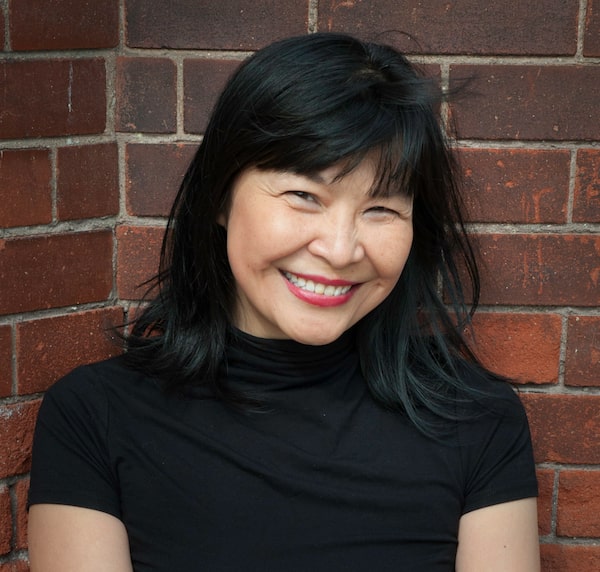The Writers’ Trust of Canada and partner RBC announced the removal of the restrictive age cap of 35 years on the RBC Bronwen Wallace Award for Emerging Writers on Monday. An open letter dated Jan. 8 and authored by writer and editor Jade Wallace had criticized the award. Over the following week, the letter accumulated more than 150 signatures from authors, writers, poets and editors, including Alicia Elliott and Farzana Doctor.
The open letter states the award’s age cap discriminates against BIPOC (Black, Indigenous, and other people of color), LGBTQ2IA+, immigrant and disabled emerging writers, stating that writers from these groups experience barriers to “participating fully in the literary community.” This is a sentiment echoed by many Canadian writers and one that the Writers’ Trust acknowledges. “We’re aware from stories told to us and in a way that might now seem self-evident, that people now emerging from the BIPOC community would have reason to do so a bit later [in life],” executive director Charlie Foran says.
The Writers’ Trust, established by Margaret Atwood, Graeme Gibson, Pierre Berton, Margaret Laurence and David Young, has distributed more than $970,000 to winners and finalists in 2020 alone, and has played a pivotal role in Canadian literature. Since its inception more than 40 years ago, the Writers’ Trust has evolved in many ways, with the removal of the age cap being just the most recent example.
“The conversation about the age cap has been ongoing inside the Writers’ Trust for some time,” Foran says, adding that, “hearing from people, both privately and publicly, was very helpful.”
The award has celebrated emerging Canadian writers for 25 years by endowing a prize of $10,000 on the winner, and $2,500 on each finalist. The award is one of Canada’s most celebrated literary prizes for emerging writers, attracting the attention of industry professionals and paving the way for emerging writers including Maria Reva, Alissa York, and most recently, Leah Mol.
Here’s what some writers had to say:

Carrianne Leung, a 2020 Bronwen Wallace Award jurist.Carrianne Leung
Carrianne Leung, The Wondrous Woo (2013) and That Time I Loved You (2018), 2020 Bronwen Wallace Award jurist, “It’s great that there are supports for emerging writers, but I’ve always thought that this notion of emerging attached to a specific age is just not the way writers work … a lot of racialized writers, mostly women, are so relieved when they feel like they can be supported as emerging writers at older ages … [the age cap removal] sends a strong message.”

Jael Richardson is the founder and executive director of the Festival of Literary Diversity (FOLD).Simon Remark/Supplied
Jael Richardson, The Stone Thrower (2012) and Gutter Child (2021), founder and executive director of the Festival of Literary Diversity (FOLD), “It’s very common for people from marginalized communities to … pursue [writing] later in life or to seek it out as a tool to manage things that are happening around you … particularly if you’re not reading books by marginalized writers. It often takes [writers of colour] longer to believe that we’re welcome. The people that will benefit from this change are not just the writers, the prize will be stronger itself as a result.”
Amanda Leduc poses for a calendar in this photo released on Feb. 19, 2013.Shelagh Howard/The Canadian Press
Amanda Leduc, Disfigured: On Fairy Tales, Disability and Making Space (2020) and The Centaur’s Wife (2021), “Marginalized writers often don’t have the resources to explore and expand their writing until later in life, especially for [disabled] people who may require high levels of care … and there’s this sentiment that the only writers worth investing in are young, attractive, abled and white. I think [the age cap removal] is a good development … it will make things possible in the wider realm of publishing, too, if other organizations can follow in the wake of the Writers’ Trust.”

Dorothy Ellen Palmer, author of 'When Fenelon Falls'.Supplied
Dorothy Ellen Palmer, When Fenelon Falls (2010) and Falling for Myself (2019), “I’m 65 and … for the last 15 years I’ve been in CanLit, I’ve been annoyed that the equation of emerging writer means emerging from puberty. You can emerge at any age … disabled people frequently take longer to complete education or may take longer to do the writing itself. It’s important that we start to realize that the way we’ve always done things isn’t the only way to do them. I think [the age cap removal] is a really good start.”

Bänoo Zan is a poet, teacher, editor, and founder of Shab-e She’r.alex usquiano/Supplied
Bänoo Zan, poet, teacher, editor, and founder of Shab-e She’r, “There are so many barriers to inclusivity [for immigrants and refugee writers] … a lot of them don’t even write or perform in English. For those of us who come from other parts of the world, even beginning to [find] opportunities, we miss a lot of chances that other people who are born here have … the more we fight for inclusivity, the more we benefit from the wisdom of people who will be able to share their voices and their visions.”
Special to The Globe and Mail
Sign up for The Globe’s arts and lifestyle newsletters for more news, columns and advice in your inbox.